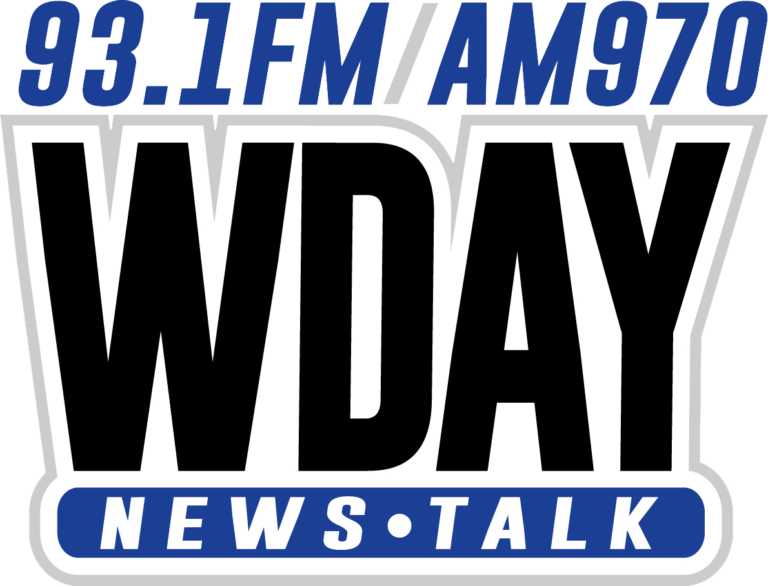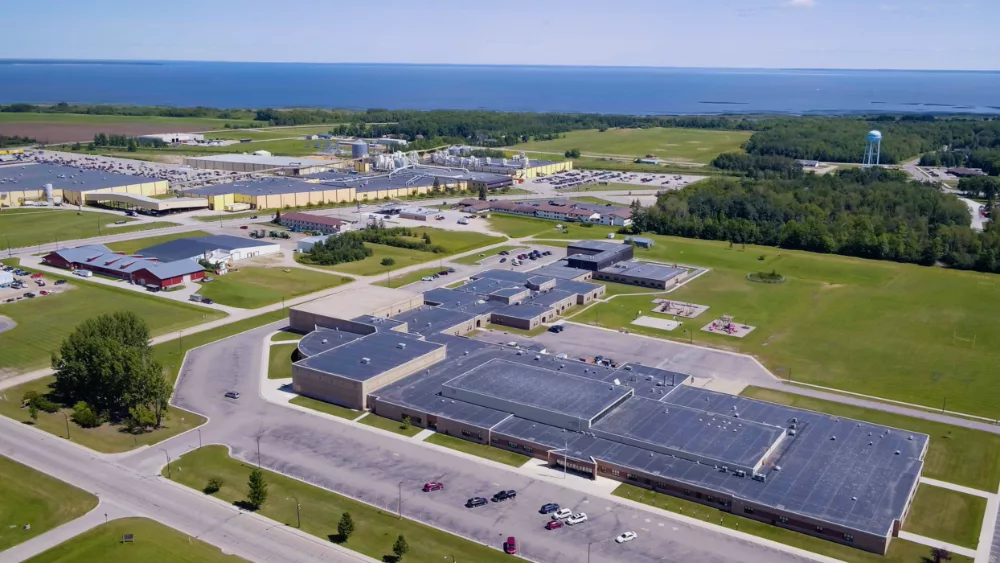(Bismarck, ND) — U.S. Senator John Hoeven spoke on several topics with WDAY Radio Reporter Ty Schonert.
Pembina’s Motor Coach Industries Facility
When Motor Coach Industries originally announced they would be closing their doors for June of 2023, the North Dakota Congressional Deligation wrote a letter urging MCI to reconsider the decision. The letter cited “serious concerns” for the near 200 employees working at the plant from the Pembina area, and began a series of conversations between the legislators and the company.
“Starting [about] six or seven years ago… they developed a facility in Crookston, Minnesota. They built some of the lines over there and some of the lines here, because they have different bus products. What happened is that they were able to get more workforce over in that Crookston area than here. So the union was ahead of the curve, and they said ‘hey, we got to be careful, because they could end up moving everything over there’,and that in fact looked like what they were going to do,” said Hoeven.
Hoeven and other members of the congressional deligation spoke with MCI President Chris Stoddart several times since the initial concerns were penned in the letter. He says the decision by MCI will have a huge impact on the Pembina community.
“You’re talking hundreds of jobs. It doesn’t just effect Pembina, it effects that whole North East region of our state. And also, we pull workers from over in Minnesota as well,” said Hoeven.
Bobcat and Mexico
Speaking about MCI’s decision to stay, Hoeven said the congressional deligation speaks with businesses “all the time” who are making similar moves. The lawmaker says this includes Bobcat, who recently announced their plan to build a $300 million, 700 thousand square foot manufacturing plant in Monterrey, Mexico. Hoeven says his discussions with Bobcat CEO Mike Ballwebber and Union employees have been a point of focus recently.
“I’ve been talking with [Ballwebber], he’s assured me that it does not mean any diminution of jobs in North Dakota, in fact, they are looking and could hire a couple hundred people right now. But, at the same time, the Union has come to us and said ‘Hey, we want management to tell us what is going on, give us some assurances,'”
Hoeven plans on visiting with Bobcat employees management and employees to further understand any concerns. The company currently employs approximately 3,700 people in the state, with an estimated 2,000 in the Gwinner area alone. However, Bobcat management says more staffing is needed to fill their work goals.
“Labor constraints, not just in North Dakota but in all of the U.S. right now are really hampering our ability to looking at adding more production in the U.S, “said Bobcat Company President Mike Ballwebber in a previous statement in early November, “So we are looking at where can we get where we can still shorten our supply lines, keep products as closest as we can to our customers but have more availability of labor and that is why we started to look at Monterrey and it just made sense.”
The move by Bobcat is expected to increase the North American compact loader production by 20%.
Farm Bill Contributions
Senator Hoeven briefly spoke about progress being made on the Federal Farm Bill. President Joe Biden passed a continuation of the 2018 Farm Bill late last week that will last into January and early February. A move that Hoeven says is a good thing for the farmer’s side of the negotiating table.
“I’m not willing to say okay yet, in terms of the things that we need,” said Hoeven, “I think that extension strengthens our hand in this negotiation to get the best bill possible for our farmers and ranchers.”
Hoeven cited the need for enhancements to crop insurance, especially making it more affordable through a primary provider or supplemental policy. He called enhanced crop insurance a “fundamental priority” he wants to pass in the bill. In addition, Hoeven also wants to update ARC and PLC reference prices for agriculture products.
“If we don’t update those reference prices then the safety net isn’t relavent,” said Hoeven.




